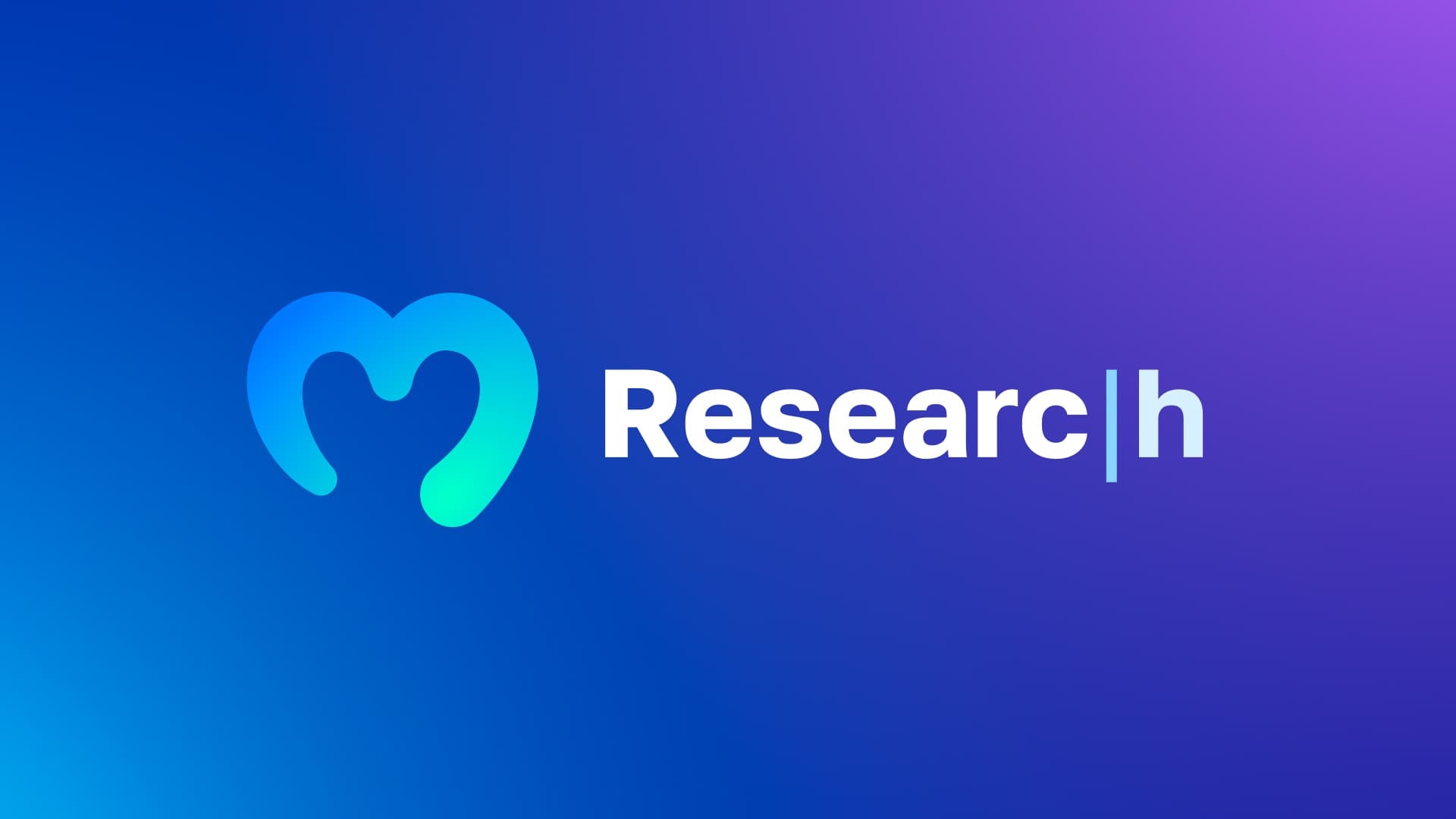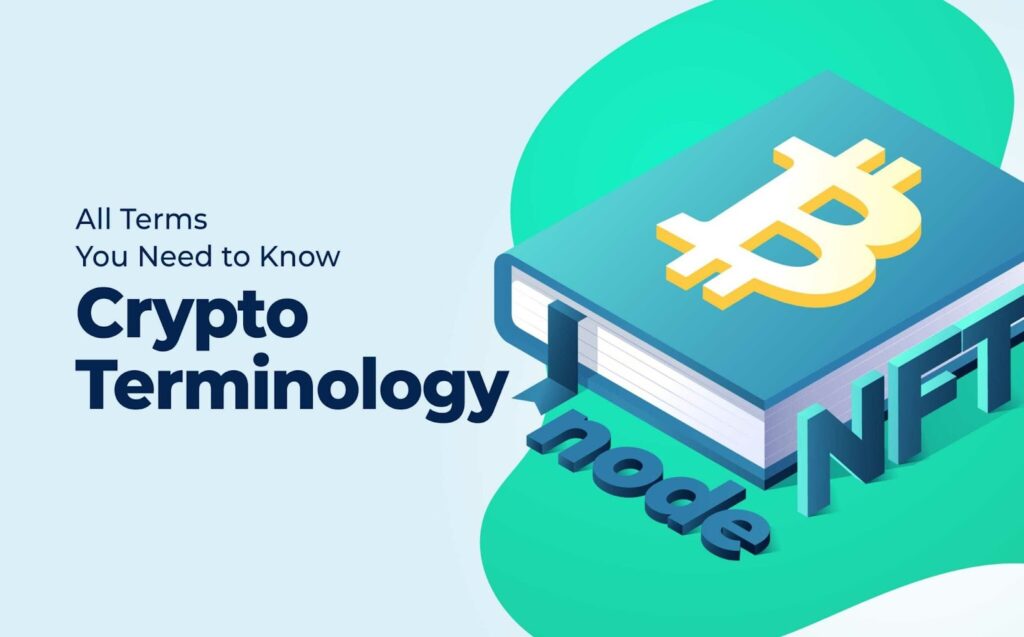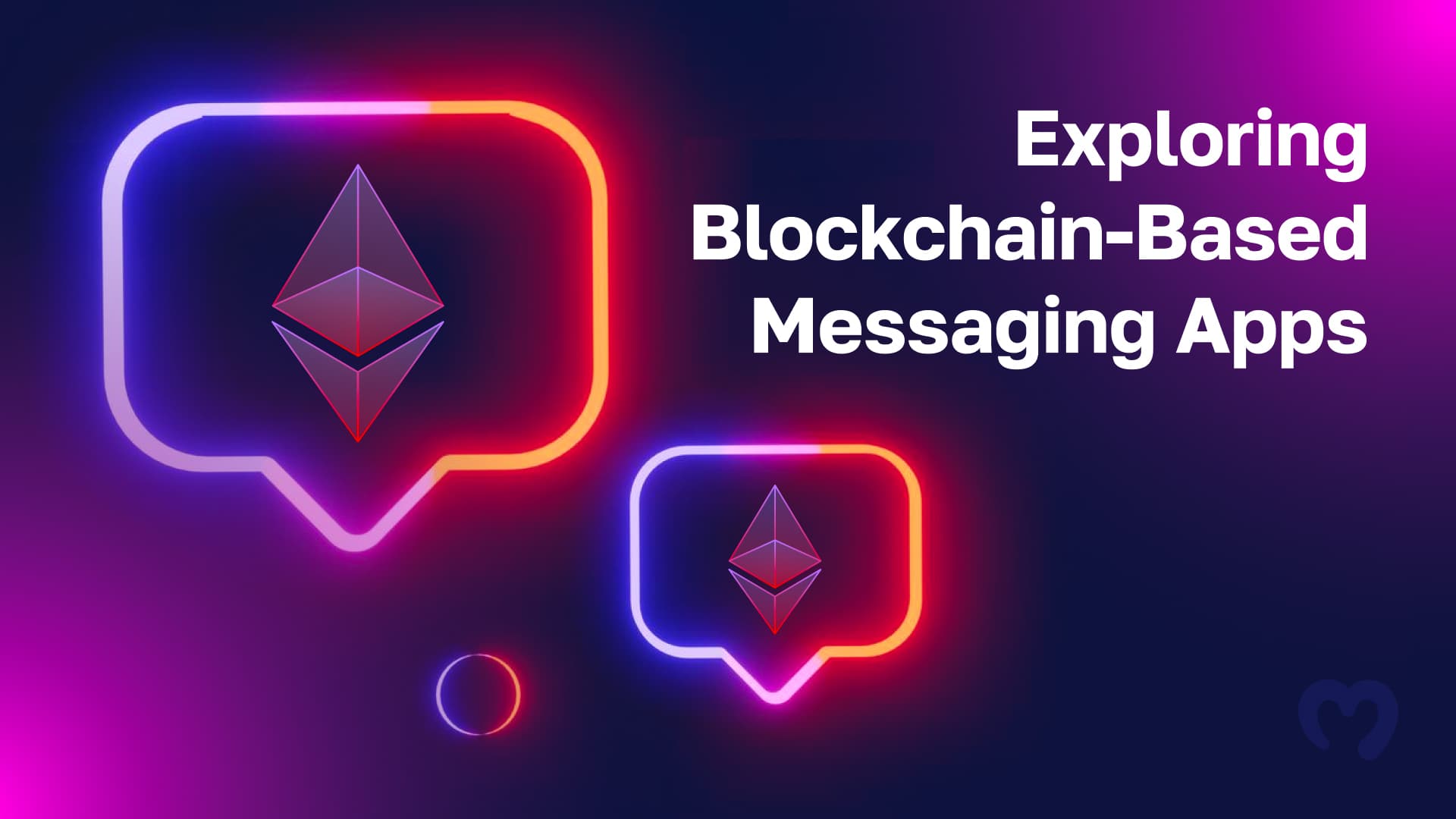Messaging apps are one of the most popular tools for everyday communication. There are various blockchain messaging apps on the market that integrate Web3 functionalities. The main goal of blockchain messaging apps is to provide users with a reliable, decentralized alternative to mainstream messengers. Blockchains use decentralized networks of nodes to process data. Messenger apps that use blockchains provide users with highly secure and private communication features. These features are becoming highly popular among users who value privacy and security when sending messages. However, centralized messaging apps are still far more popular than blockchain alternatives. Many users aren’t aware of the various blockchain messaging apps that provide top-notch security and preserve user privacy at all times.
In this article, we’ll explore the key issues that plague centralized messaging apps. We’ll find out what kind of alternatives blockchain messaging apps offer. Also, we’ll look at some of the leading blockchain messaging apps on the market.

Centralized Messengers and User Privacy
Messenger apps like WhatsApp and Facebook Messenger are some of the market’s most popular centralized communication apps. There are numerous centralized messengers, and they follow a similar organizational pattern. Private companies own these messengers and entirely control all the operational aspects of the apps. The companies manage the storage of data and user messages. While some centralized messengers claim that they don’t store messages, others clearly state they store them on their siloed servers. The problem is that users can’t control what happens with their data and who has access to it.
The main danger regarding user privacy and centralized messengers is potential platform hacks. Centralized messaging networks have closed cybersecurity systems. If a hacker manages to break into such a security system, all of the stored data is in danger. A centralized messenger is only as safe as the network’s security. Furthermore, if an app keeps messaging histories like Facebook Messenger, hackers can get control of all types of private information.

Centralized Messengers and Technical Issues
The centralized nature of mainstream messaging apps allows for numerous potential technical issues. Data shows that apps like WhatsApp and Facebook Messenger are prone to frequent crashes and network bugs. The main reason behind these crashes is the vast, centrally controlled operational mechanism. Keeping a centralized system with hundreds of millions of users smoothly operating is tough. For example, a minor app update regularly causes chaos in a centralized messaging system. That’s because the whole network needs to simultaneously update its mechanism, while a centralized data processing system controls the update process. App updates often cause the entire system to crash, rendering the apps useless until the network recovers. These crashes often take several hours to resolve, considerably disrupting businesses that rely on centralized messaging apps for communication.
When the network receives too many user requests, there isn’t any way to distribute the workload. Instead, all the traffic is processed centrally, leading to crashes. A decentralized alternative relies on numerous network nodes to process traffic and distribute the workload.

The crypto world has thousands of exciting projects and a broad range of use cases. Learn the basics of cryptocurrency with the Crypto for Beginners course at Moralis Academy.
Blockchain Messaging Apps
Blockchain messaging apps use the sharp opposite regarding network structure compared to centralized messengers. These apps use blockchain technology to facilitate communication between users through blockchain transactions. Blockchains are a type of distributed ledger technology, essentially a decentralized network structure. Instead of one centralized system that processes traffic, blockchain messaging apps use many autonomous network nodes.
The decentralized app structure makes blockchain messengers much more stable. Since numerous nodes process transactions, the network isn’t over-encumbered. Also, blockchain apps have potentially better security since they don’t use centralized servers. A hack of a few nodes won’t bring the network down. Additionally, blockchain technology focuses on preserving user privacy. Blockchain messaging apps don’t store user data or messaging history on company servers.
Blockchain messaging apps are a good alternative to centralized apps in terms of security and privacy. However, these messenger apps are far from mainstream adoption, and their user base is far smaller than that of the leading centralized messengers.

JavaScript is an essential programming language for everyone looking to enter Web3 development. Learn JavaScript with the JavaScript Programming 101 course at Moralis Academy.
Secretum: The Pioneer of Blockchain Messaging Apps on Solana
Secretum is an innovative blockchain messaging app that uses the Solana (SOL) blockchain. There’s no centralized server or any user identification. All you need is a crypto wallet address, and you can use Secretum to communicate with other wallet owners. Instead of using mobile phone numbers to communicate with each other, users connect through wallet addresses. Secretum has a native SER crypto token, which is essential for the work of the network. Communication on Secretum uses blockchain transactions of SER tokens to exchange messages in seconds. Users can communicate with text messages, conduct video calls, and exchange files with Secretum. Additionally, the app allows users to conduct secure crypto transactions.
Secretum leverages the Proof-of-Stake (PoS) consensus mechanism by powering network traffic through stakers of the SER token. Also, app users get to stake SER and earn rewards while using Secretum. User communication is always encrypted and stored on decentralized Secretum nodes instead of using a centralized server.

Web3 is bringing cutting-edge innovations through decentralized applications and blockchain solutions. Learn more about Web3 innovations with Web3 ebooks at Moralis Academy. If you plan to join the market as a developer, check this guide on how to make a Web3 website.
Status
Status is a highly innovative Ethereum-based blockchain messenger that provides users with multiple blockchain features. Users can communicate with each other through the app’s secure messaging feature. Status has one-on-one and group chat options. All messages are end-to-end encrypted, and Status ensures no third parties can monitor user communication. Messages are only visible to senders and receivers. The Status team doesn’t have access to user communication, and the app uses the Ethereum blockchain for storage. The app uses the Waku peer-to-peer messaging protocol. The Waku protocol sends messages to the whole network for processing and encryption, but only the recipients can view the messages.
Besides messaging features, Status also acts as a crypto wallet for Ethereum-based cryptocurrencies. Also, Status has an integrated dapp browser that allows users to connect to numerous Ethereum blockchain apps. Status values user privacy and doesn’t require users to provide personal information when creating an account.

There are numerous essential terms that crypto enthusiasts regularly use. Learn all about these terms with the crypto terminology guide at Moralis Academy.
Dust: One of the First Blockchain Messaging Apps
Dust is a veteran blockchain messaging app launched in 2014. The app uses blockchain technology to facilitate communication between users. Dust comes in the form of a classic messaging app that connects users through their mobile phone numbers. Users don’t need to provide additional data besides their phone number, which means the app is pseudonymous. Messages use end-to-end encryption; no one can view the message contents except the senders and receivers.
Dust is known for its “dusting” feature, which automatically erases all messaging history after 24 hours. Users can also delete messages themselves after reading. Plus, the platform doesn’t store messaging history anywhere. When a user deletes a message, it’s gone forever, and there’s no record of the message. Also, Dust has an integrated stealth search feature that allows users to browse the web anonymously. The stealth search feature ensures you aren’t downloading any unnecessary data and leaving a digital footprint on the web.

Blockchain technology allows users to control their assets, retain their privacy, and interact with thousands of decentralized apps. Learn all about blockchain technology with the help of blockchain guides at Moralis Academy.
Crypviser
Crypviser is a highly versatile blockchain messaging app that prioritizes user security. The app provides end-to-end messaging encryption for everyday users and businesses alike. Crypviser focuses on improving the safety of business communications. Instead of using a centralized communication infrastructure, Crypviser has an enterprise communicator service for companies. This service ensures companies have a closed communication network that only authorized users can access. However, since Crypviser uses decentralized network nodes, cyber attackers can’t just breach a company’s network. There’s no single point of failure for hackers to exploit. Thanks to these features, Crypviser is a valuable tool for businesses that want to keep their communication channels private.
Crypviser uses a decentralized public key infrastructure (DPKI) to encrypt communication and store it on the blockchain. The app is available for both mobile devices and desktop computers. Companies can use the Crypviser cloud blockchain option to install a remote business communication network. Also, users can deploy an on-site private network for their company. It’s important to note that no one besides the app’s users can access the message contents. Crypviser provides the infrastructure and the technology but doesn’t have access to any user data.
Decentralized apps are the building blocks of Web3 technology. Learn how to create a dapp with this three-step tutorial at Moralis.
Wispr
Wispr uses blockchain technology to provide users with complete anonymity. This blockchain messenger app enables users to engage in texting, voice calls, video calls, and data transfer. These features use end-to-end encryption and the Voice Over Blockchain Protocol (VOBP) to ensure no one can hijack user communication. This blockchain protocol’s purpose is to facilitate secure user communication through the blockchain. When you grant permission to Wispr to access your camera or microphone, there’s no possibility of a third-party hijacking the connection because of VOBP. The protocol uses peer-to-peer transactions and decentralized storage to keep communication private.
Wispr connects users through their mobile phone numbers, but the communication goes through the blockchain. Also, Wispr supports conference calls and group chats. Furthermore, users can set up disappearing messages that vanish after a set period. Once the timer is up, Wispr permanently deletes the messages. Another feature is that it gives complete control over communication to users. Not even Wispr’s team can intercept user communication or view message contents.
Adamant
Adamant is a decentralized blockchain messenger app focusing on user privacy. Users don’t need to go through any registration process. The app doesn’t require a phone number or email address. Adamant doesn’t access user data such as the user’s physical location or contacts list on their mobile phone. All communication on Adamant is encrypted, and the app hides your IP address from third parties. Adamant uses some of the most advanced encryption measures among blockchain messaging apps. The messaging app uses several encryption algorithms, such as Diffie-Hellman Curve25519 and Salsa20. These algorithms ensure no unauthorized party can view the contents of your messages.
Adamant also comes with crypto wallet features. Users can store various popular cryptocurrencies with Adamant, and the private keys always stay on the user’s device.
Exploring Blockchain-Based Messaging Apps – Summary
Blockchain messaging apps use a decentralized network structure to provide users with high-security features and preserve their privacy. Also, these apps don’t store user data or communication records on centralized company servers. One of the critical advantages of blockchain messaging apps is that they don’t have single failure points. Instead of closed, centralized security systems, these apps rely on decentralized network nodes for security.
However, blockchain messaging apps are far from competing with the largest centralized messenger platforms. Blockchain messaging apps are far less scalable than the dominant centralized messengers. On the other hand, the adoption of blockchain technology is rapidly increasing. It remains to be seen whether blockchain messaging apps will be able to compete with centralized messenger services in the future.
Blockchain technology is entering all areas of society, but it all started with Bitcoin in 2009. If you want to learn more about the essentials, check out the Blockchain and Bitcoin 101 course at Moralis Academy.




